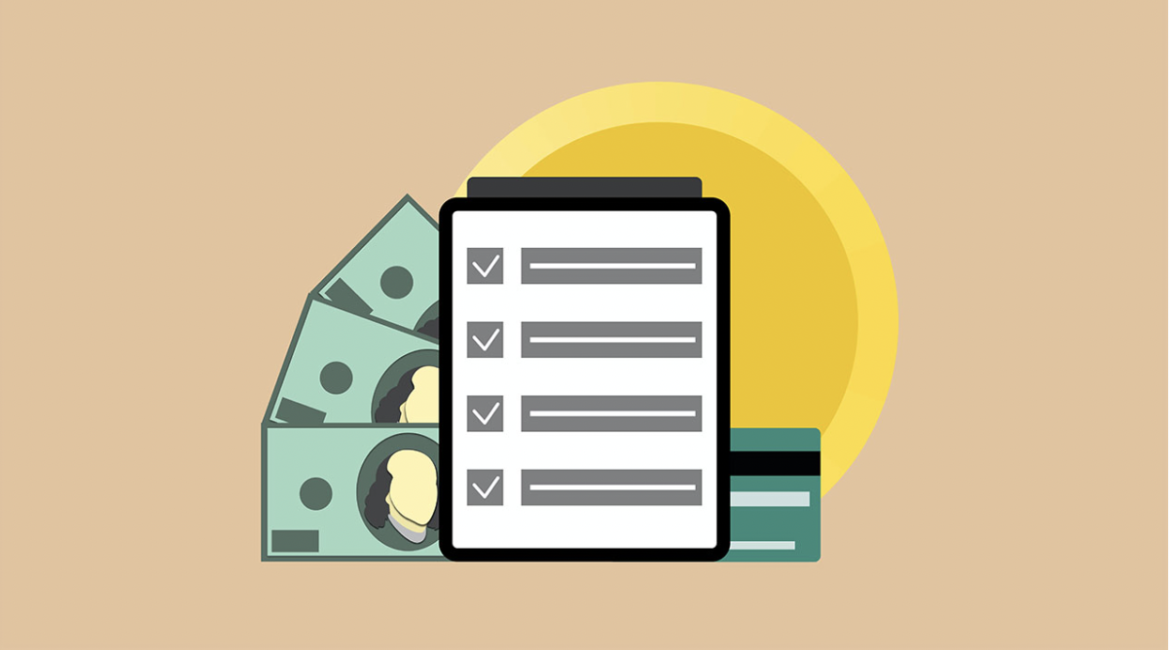Introduction
A payday loan is a small, short-term loan that is typically used to cover unexpected expenses or to tide someone over until their next payday. Payday loans are relatively easy to obtain and can be a quick and convenient way to access cash when you need it. However, they also come with some risks and should be repaid as soon as possible. In this blog post, we’ll take a look at the basics of payday loans, what you need to qualify for one, and how the process works. We’ll also provide some tips on repaying your loan so that you can avoid any potential pitfalls.
The basics of payday loans.
What is a payday loan
A payday loan is a short-term, high-interest loan designed to be used as a stopgap measure between paychecks. The typical term for a payday loan is two weeks, and the average APR is 400%.
How do payday loans work
Payday loans are typically small, ranging from $100 to $1,000, and are meant to be used as emergency funds. When you take out a payday loan, you write a check dated for your next payday, which the lender holds onto until that day. On your next payday, you must either hand over cash to cover the amount of the check plus fees or rollover the loan by paying just the fees and writing another check dated for the following payday. If you don’t have enough money to cover the check on your next payday, the cycle repeats itself until you’re able to repay the full amount of the loan plus fees or default on the loan altogether.
The benefits of payday loans
Despite their high interest rates and potential for debt spirals, there are several reasons why people might choose to take out a payday loan:
-They are easy to qualify for: You can typically get a payday loan as long as you have a steady income and an active checking account.
-They’re fast: You can usually get your money within 24 hours of applying for a loan.
-They’re convenient: You can apply for a loan online or in person at one of many storefront locations nationwide.
-You don’t need good credit: Because most lenders don’t perform a hard credit check when you apply for a loan, it’s possible to get approved even if you have bad credit.
The requirements for getting a payday loan.
Eligibility requirements
In order to be eligible for a payday loan, you must:
-Be at least 18 years old
-Have a steady source of income
-Have an active checking account
-Be a U.S. citizen or permanent resident
What you need to apply for a payday loan
When you apply for a payday loan, you will need to provide:
-Proof of income (pay stubs, bank statements, etc.)
-Proof of identity (driver’s license, passport, etc.)
-Your contact information (phone number, email address, etc.)
-An active checking account number
-Your social security number (for a credit check)
The process of getting a payday loan.
Applying for a payday loan
When you are ready to apply for a payday loan, the process is relatively simple. You will need to provide some personal and financial information, including your Social Security number, employment information, and bank account details. The lender will also need to know how much money you want to borrow. Once you have submitted your application, the lender will review it and decide whether or not to approve your loan.
If your loan is approved, you will receive the money in your bank account within one business day. In some cases, you may be able to get the money on the same day you apply for the loan. The repayment process for a payday loan is typically very straightforward. You will have to repay the full amount of the loan plus any interest and fees that are due. The repayment period is usually very short, typically two weeks to one month.
Receiving your payday loan
Once your loan is approved, the funds will be deposited into your bank account within one business day. In some cases, you may be able to access the funds on the same day that you applied for the loan. Before you can access the funds, however, you will need to sign a promissory note agreeing to repay the loan plus any interest and fees that are due.
The repayment period for a payday loan is typically very short, typically two weeks to one month. During this time, you will need to make sure that you have enough money in your account to cover the repayment amount. If you do not have enough money in your account when the repayment is due, you may be charged additional fees by your lender.
The repayment process for a payday loan.
repayment options
When you take out a payday loan, you will need to repay the full amount of the loan plus interest and fees within a certain period of time, typically within two weeks. You may be able to extend the repayment period if you are unable to repay the loan in full within the specified time frame. However, extending the repayment period will typically result in additional interest and fees.
There are several different options for repaying a payday loan:
Option 1: Pay in Full
If you are able to repay the full amount of the loan plus interest and fees by the due date, this is typically the best option. By paying in full, you will avoid any additional interest or fees and can save money in the long run.
Option 2: Partial Payment
If you are unable to pay the full amount of the loan plus interest and fees by the due date, you may be able to make a partial payment. This option will likely result in additional interest and fees, as well as extended repayment terms. Partial payments can also negatively impact your credit score.
Option 3: Rollover/Extension
If you are unable to pay the full amount of the loan plus interest and fees by the due date, you may be able to roll over or extend your loan. This option will result in additional interest and fees, as well as extended repayment terms. Rolling over or extending your loan can also negatively impact your credit score.
Option 4: Default/Collection
If you are unable to pay back your payday loan, you may default on your loan or go into collections. This option will result in negative consequences such as damage to your credit score, wage garnishment, legal action, and more. Defaulting on or going into collections for a payday loan should be avoided at all costs.
Tips for repaying your payday loanTips for repaying your payday loan
-Pay off your debt as soon as possible: The sooner you repay your debt, the less money you will have to pay in interest and fees. Try to come up with a plan to repay your debt within a few weeks or months so that you can save money in the long run.
-Make larger payments if possible: Making larger payments towards your debt can help reduce overall interest and fee costs associated with your payday loans . If possible , try to make payments that cover more than just the minimum payment each month .
-Create a budget : A budget can help ensure that you have enough money each month to cover all of your expenses , including your monthly debt payment . Be sure to factor in all sources of income , including wages , tips , commissions , child support , alimony , etc . when creating your budget . Also , don’t forget about necessary expenses such as housing costs , food costs , transportation costs , etc .
-Consider consolidation or refinancing : If you have multiple debts from different lenders , consolidating or refinancing those debts into one single payment could help simplify things . This could also potentially lower overall monthly payments depending on individual circumstances .
Conclusion
A payday loan can be a great option when you need cash fast. They are easy to apply for and you can receive the money quickly. The repayment process is simple and there are several options to choose from. When repaying the loan, be sure to make your payments on time and in full to avoid any penalties or fees.



